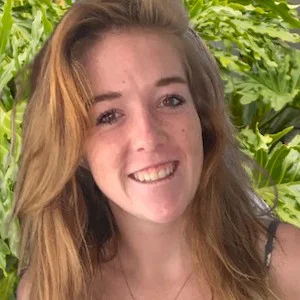While grappling with the many faces of addiction, it’s crucial not to overlook marginalised communities, including the Deaf and hard-of-hearing. You may not be aware that this community faces unique barriers in both the recognition of substance abuse and access to treatment. This is especially relevant in South Africa, where societal taboos and limited resources further complicate the issue.
Language and communication form the crux of the problem. For the Deaf community, the absence of culturally competent care in sign language can mean that essential nuances get lost in translation. Just imagine not being able to articulate your struggles or even basic information about your condition to a healthcare provider. This gap goes beyond mere inconvenience; it’s a matter of life and death in some cases.
Another layer of complexity is the social isolation often experienced by Deaf individuals, which can exacerbate addictive behaviors. In South Africa, where resources for the Deaf are already scarce, the risk of substance abuse can escalate rapidly, trapping individuals in a vicious cycle of addiction and isolation.
Also, societal stigma can be more intense. You might find it shocking that, within this community, the shame associated with substance abuse can be magnified, given the close-knit nature of Deaf communities. What you need to consider is how this feeds into a harmful cycle of silence, making it even more difficult for individuals to seek help.
With South Africa’s diverse population and range of spoken languages, adding sign language into the mix of addiction treatment services becomes not just a matter of inclusivity but a necessity. Tackling addiction among the Deaf community requires a concerted effort to provide sign language-trained medical staff and addiction specialists, as well as culturally sensitive outreach programs. Because, when it comes to addiction, silence can be as damaging as the substance itself.
In the dark days leading up to finding Changes, I never knew the journey I was about to embark on. I had no idea what rehabilitation really meant and always had a stigma about addiction.
I came to Changes a complete wreck. Didn’t want to do anything about my drug addiction. I fought the system for as long as I could but eventually my mind was changed about what I had to do.
Changes changed my life. Thank you all! The support and care I received during my time there were incredible. I couldn't have done it without the amazing team at Changes. I am forever grateful.
Dropped our loved one in the safe hands of Changes Northcliff 2 years ago. We are forever grateful for the transformation we have experienced. The facility is receptive and staff are professional and compassionate.
On the 7th February 2007, I found a place that cared as much for me and my recovery as I possibly do today. I met with Sheryl and completely removed all the masks I had worn for years.
“Unheard Struggles: Substance Abuse in the Deaf and Hard-of-Hearing”
If you or someone you know is part of the Deaf or hard-of-hearing community and struggling with substance abuse, know that you’re not alone and help is available. The specific barriers you face—like language obstacles and intensified social stigma—can make your experience uniquely challenging, but they also make seeking professional help all the more crucial. South Africa already has limited resources for the Deaf, and with the added burden of addiction, you can’t afford to let these challenges keep you from the help you need.
In a nation as diverse as ours, inclusivity in healthcare should be a right, not a privilege. Our addiction treatment services are designed to be accessible to everyone, including the Deaf and hard-of-hearing community. We offer culturally sensitive programs led by sign language-trained staff, ensuring you receive the level of care and understanding that you deserve. Reaching out for professional help is a bold step towards reclaiming your life; don’t let your struggles go unheard.
Frequently Asked Questions
- What are the unique challenges that the Deaf community faces in dealing with addiction?
You might wonder why addiction is particularly problematic for the Deaf and hard-of-hearing community. The answer lies in accessibility and communication. Language barriers can make it difficult for you to seek proper care and treatment. Cultural stigmas within the community can also make it challenging to discuss addiction openly. - Are there treatment facilities in South Africa that are accessible to the Deaf community?
While South Africa has a limited number of facilities that are tailored specifically for the Deaf and hard-of-hearing, some treatment centers do make an effort to be more inclusive, offering sign language interpreters or staff trained in Deaf culture. You’ll have to do your research to find a center that meets your specific needs. - Is the rate of addiction higher among the Deaf compared to the hearing population?
Studies suggest that substance abuse rates are comparable between the Deaf and the general population, but the former often lack the resources for proper care and intervention. This means that while you or your Deaf loved ones may be just as likely to encounter substance abuse, the barriers to effective treatment can be significantly higher. - What kinds of substances are commonly abused in the Deaf community? The range of substances abused does not differ significantly from the general population. This means you’re likely to encounter the same drugs or alcohol issues, but again, the treatment pathway might be more convoluted due to communication and cultural barriers.
- How can I or someone in the Deaf community get help for addiction?
The first step in getting help is acknowledging the problem. Once you or your loved one are ready to seek help, the next step is finding the right resources. Your GP is often a good starting point for medical advice, but make sure to inquire about any Deaf-accessible services they may recommend. Support groups, both in-person and online, can also be a helpful part of your support system.
Addiction in the deaf community remains hidden as services miss communication needs, urging better access and tailored care for deaf and hard of hearing people. Changes team counsellors are here to help you.Addiction Among the Deaf Community Needs Better Access










